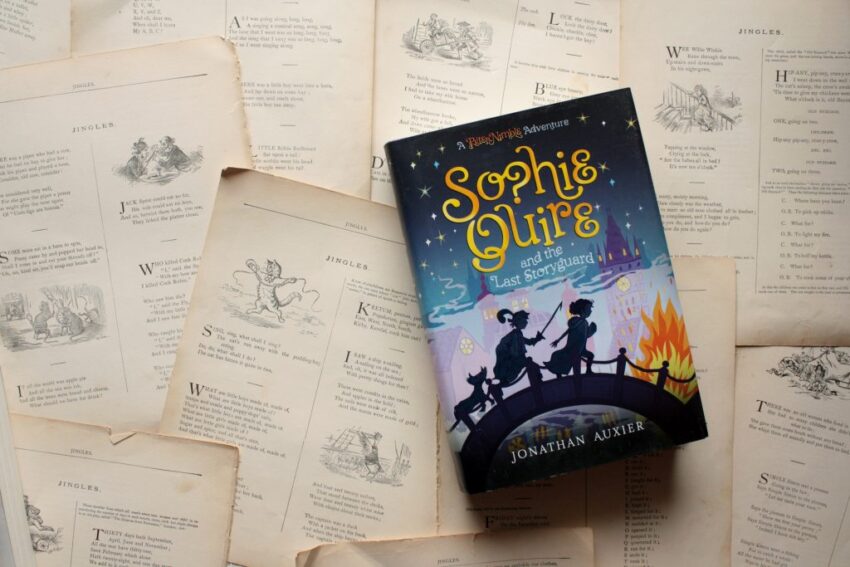Across many books, movies, and TV shows, writers often seem to include whole casts of characters who have very little reason to participate in the plot. They’re certainly interesting, often with complicated pasts, deep relationships, and meaningful dialogue, but they don’t have a clear reason to participate in the story. They might have a mild interest in the plot, but not enough to convince the readers that they belong there. Many writers work so hard to make their characters interesting that they forget to have them personally invested in the plot.
But characters can be so much more. Protagonists and side-characters who are built like this take away a crucial, emotional element to storytelling that proves surprisingly challenging to incorporate from a writer’s perspective, and is often neglected. However, when included, it can be one of the most powerful things a writer can do to invest their readers in their plot.
Here to show us exactly what this element is and how powerful it can be in any story, is Jonathan Auxier’s middle-grade fantasy novel Sophie Quire and the Last Storyguard.
Sophie Quire And the Last Storyguard
Sophie Quire lives the average life of a book-keeper, alongside her father in the town of Bustleburg. Her mother mysteriously died shortly after Sophie was born, and although Sophie would do anything to learn more about her missing parent, her father refuses to tell Sophie anything. All she really knows is that her mother loved books and the little shop that houses them. Now, it’s difficult for Sophie to even keep that connection to her mother since hardly any of the townspeople care to read books anymore and the shop stands on the brink of closing.
All of that changes when a boy named Peter enters Sophie’s shop, asking for her help mending a magical book that can flip through its own pages and answer any questions the reader may have.
Through this book, Sophie discovers a truth about her mother that her father never bothered to mention. Her mother used to be a Storyguard, someone who protects books and magic at all costs. And now, Sophie is the next (and possibly the last) Storyguard. She could be the key to saving her shop, but to do that she has to venture outside of it and track down the old Storyguards, who may also have known her mother.
Meanwhile, Peter Nimble was once the Greatest Thief Who Ever Lived — and he loved it. All he wanted out of life was risk and adventure, until he discovered his true heritage as the prince and heir of the kingdom of Hazelport. But responsibility had never been his forte, and the new multitude of duties along with his fear of being an inadequate leader drove Peter to leave his sister to handle all the responsibilities so he would be free to pursue adventure.
Give Them A Personal Stake
Your characters are the best way for you, as a writer, to reach your reader’s heart. Once you have a relatable, fully fleshed-out character, your readers will be able to feel what your protagonist feels, care about what matters to them, and value the things that they value most. That means if you truly want your readers to be invested in your plot, the best way to do that is make sure your characters are, too. That personal investment is the secret ingredient that can take your plot from a series of events to a riveting adventure that feels like its risking life and death, even if your characters’ lives aren’t directly at risk.
Sophie does everything for her mom. The only reason she accepts the call to adventure, the only reason she wants to save her mother’s shop, is because it brings her closer to her mother. For Peter, this is all a game. He wants to help Sophie save her bookshop, of course, but he’s also just there for the thrill of it. He loves sword fighting and pick-pocketing, and wouldn’t give that up for anything. He lets adventure distract him from the responsibility he desperately wants to avoid, because without the adventure, without the dangerous quest, he’d be faced with the same doubts that drove him from his kingdom in the first place.
Both of them participate in the plot because it taps into the desires and fears that make up their identity. When writing any sort of story, especially a high level fantasy-adventure where you need your readers to be able to stick with the long journey ahead, give your character’s a personal stake in the plot. Without Sophie or Peter’s individual goals, they wouldn’t have any reason to be invested in the events around them. Sure, they might still go on an adventure out of obligation or a sense of duty, but the story wouldn’t have been the same. The reader would have no emotional investment in the plot and the characters would no motivation for them to take the actions and risks that they did.
Give your characters a personal goal they’re trying to achieve throughout the story. Don’t let them just go along with the plot, but give them a reason for every action that they take. Your readers will be so much more invested in your story if the characters are, as well. Give all your characters individual goals that motivate them to take action. Let all of the events you have planned for your story tap into their deepest desires and fears, and your readers won’t be able to put your story down.



Let us know in the comments:
What stories have you read that used character goals to make their plots engaging?


Hello, I’m Sophia! I’m a child of God and I (if you couldn’t tell already) love to write! I’m also a total theater kid and strong dessert (specifically cupcake) enthusiast. For as long as I can remember, I’ve enjoyed both reading and making my own stories. I’m so glad I get to share with you what I’ve learned from some of my favorite (or sometimes least favorite) stories on this blog.


This is a really good article, Sophia!
The Green Ember series definitely makes good use of character goals for the plot, and it’s well written into the story.
Thank you! I’m so glad you liked it!
*gasp* I love the Green Ember! You’re so right, that series is definitely engaging. Hopefully, I’ll have an article about the Green Ember soon. Thank you so much for your thoughtful comment!